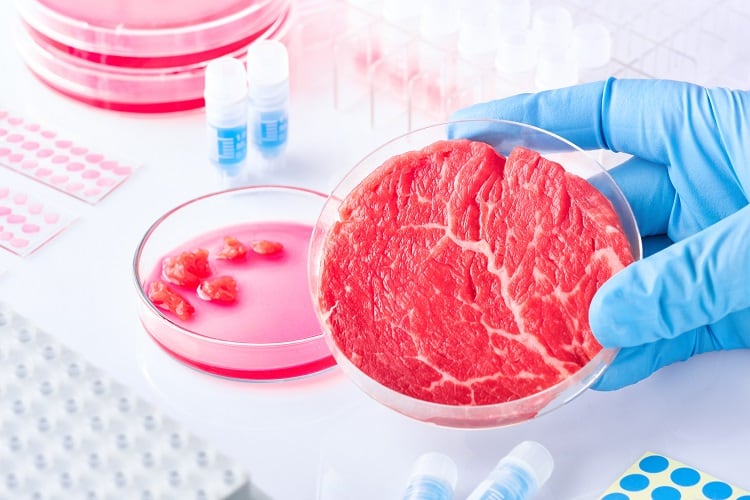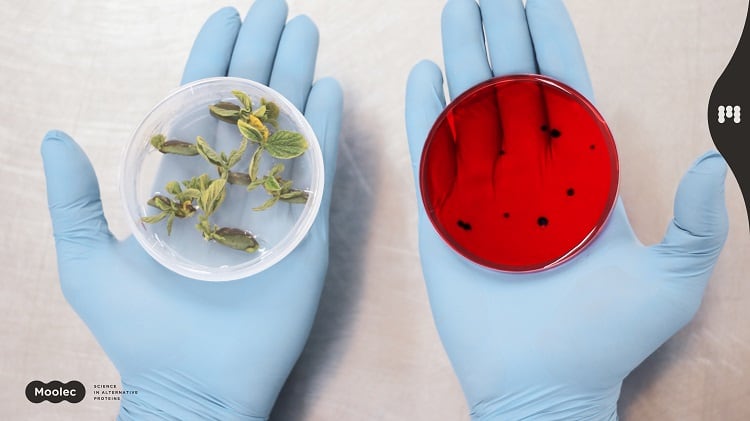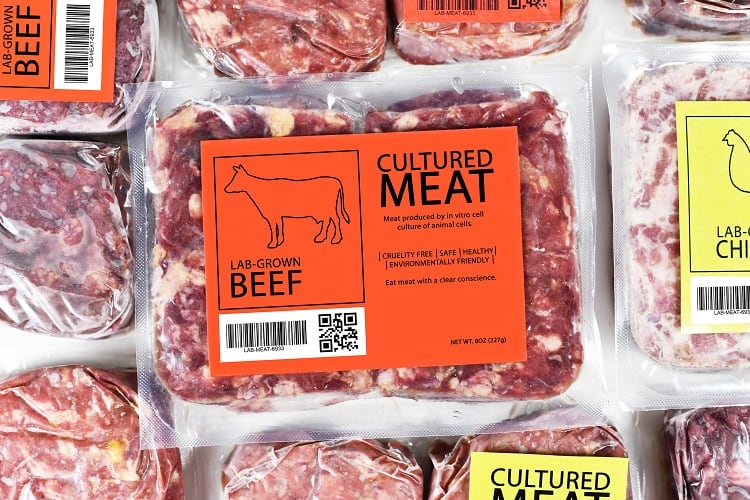The project is a collaboration between technology innovation centre CPI and Newcastle University spin-out 3D Bio-Tissues (3DBT).
By developing an improved growth media for culturing meat cells in a lab environment, the partners aim to boost cultured meat yields, while removing the need for animal-derived products. They say that doing so will make cell-based agriculture as sustainable and economical as possible.
Current production methods ‘not truly animal-free’
Cell-based meat – otherwise referred to as clean meat or cultured meat – is made from the same cell types found in animal tissue. It aims to have the same appearance, texture, and taste as the real thing.
The product was developed in response to conventional meat production, which has been criticised for its environmental footprint and associated with poor animal welfare standards.
At the same time, growing population numbers – the UN estimates the global population to reach 9.8bn by 2050 – is putting pressure on agri-food players to produce protein in a more climate-friendly way.
The development of cell-based meat is a step in the right direction. While clean meat is made without slaughtering animals, current production methods cannot technically be described as animal-free: they rely on animal-derived foetal bovine serum (FBS) to ‘feed’ the cells – which also makes current production methods expensive.
Some players in the cell-based meat space are working to develop their own animal-free FBS alternatives, yet 3DBT CEO Dr Che Connon told FoodNavigator the problem has yet to be solved.
“Several research groups and companies in Europe, the US, and elsewhere are developing serum-free media alternatives for enhanced production of cellular meat. However, most of these strategies focus on finding natural and synthetic substitutes for the relevant serum factors.”
3DBT, he told this publication, is troubleshooting in a different way.
‘A different approach’ to serum-free media
The Newcastle University spin-out is taking a different approach by focusing on the use of novel supplements derived from existing agro-industrial by-products.
“Use of these in the culture medium will represent a new animal/xenobiotic-free method to increase the efficiency of cellular meat production, a strategy that aims to reduce – or even eliminate – the need for serum supplementation – making the product truly animal-free,” the CEO explained.
By being founded on the upcycling of ingredients, 3DBT believes its methods will significantly aid in reaching carbon neutrality.
“Our approach will capitalise on the existing processing activities generating industrial by-products and consequently help build a growing (and circular) bio-economy without exploiting additional natural resources,” said Dr Connon.
“We predict that the advantages and improved outputs of our media, both direct (greater production yields with lower costs, a more appealing and acceptable product with improved tasting properties) and indirect (reduction in intensive animal rearing to supply serum/growth factors) will be key enablers of commercially viable and sustainable cellular meat, helping to move it from a low volume/high-cost product to a high-volume/low-cost product.”
Next steps
With grant funding from Innovate UK, the project will be carried out at CPI’s National Biologics Manufacturing Centre in Darlington, UK. It will draw on CPI’s expertise in bioprocess optimisation to facilitate scale-up.
3DBT’s CSO Dr Ricardo Gouveia said the company was ‘delighted’ to work with CPI on the project. “The expert support will help us to transform the production of cultured meat, making it economical, sustainable and accessible.
“We hope this will not only make it more appealing to consumers, but will be crucial to meeting the nutritional needs of the growing population.”
Once the serum-free growth media is developed, 3DBT said it plans to monetise – suggesting that working with bioreactor companies could be a good first step. “We are a commercial company and will look to exploit our leading edge,” the CEO revealed.





